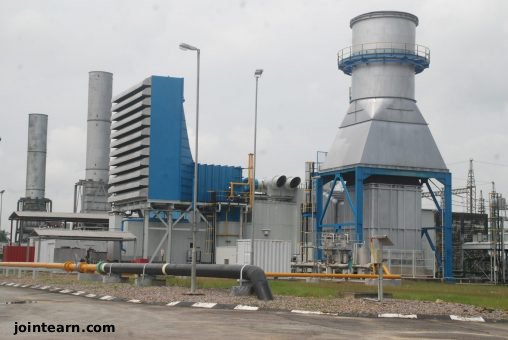
The Acting Managing Director of Ibom Power Company, Engr. Camillus Umoh, has revealed that the company is struggling to operate due to debts amounting to N28 billion, part of the broader liquidity crisis plaguing Nigeria’s power sector.
Speaking to journalists, Umoh clarified that while the company’s generating capacity remains intact, operational constraints, particularly lack of gas supply and financial liquidity, have hindered power generation.
Liquidity Crisis Impacting Power Supply
Umoh noted that as of July 2025, Ibom Power’s debts stood at N28 billion, which is part of the N6 trillion owed to Generation Companies (GenCos) by the Federal Government.
“Our turbines are ready to generate electricity, but due to the lack of gas supply and funding, we have not been able to operate at full capacity,” he said.
He explained that the largest gas turbine (GT3) generated 105 megawatts during the last NERC endurance test, out of the plant’s total capacity of 191 megawatts.
The Acting MD blamed systemic issues—including liquidity shortages, insufficient gas supply from contractors like Acugas Savannah, and widespread meter bypassing and vandalism—for the company’s inability to operate optimally.
Widespread Sector Challenges
Umoh highlighted that GenCos received less than 40% of their 2024 invoices, leaving companies unable to meet operational and financial obligations. He added that illegal power consumption by some Nigerians worsens the crisis.
“Consumers must participate in protecting infrastructure and paying for electricity to sustain the sector,” he stressed.
He also pointed out that vandalism of electricity towers and equipment in communities such as Ikot Abasi, Ikot Ekpene, and Obot Akara has caused extended power outages.
Human Capital and Investment Concerns
Ibom Power has historically trained personnel who now work across other Nigerian power plants. Umoh noted that the company’s current financial strain limits the ability to attract new investors or upgrade essential infrastructure like transformers and conductors.
He also commended the new State electricity law, which mandates that all new buildings be equipped with electricity meters, a move aimed at securing returns on investment and reducing power theft.
State Government Intervention
The Acting MD, accompanied by Ibom Power Admin Manager, Ms. Imaobong Akpabio, revealed that the State Government has developed a roadmap to tackle power challenges. Measures include:
- Establishment of a State Regulatory Electricity Committee
- Recruitment of personnel to strengthen operations
- Advocacy for citizens’ ownership of electricity meters
- Maintenance of critical electricity infrastructure, such as the Aba-Itu line
“Power is a prerequisite for development. A reliable electricity supply impacts education, health, and overall quality of life,” Umoh said.
Call for Citizen Participation
Umoh urged residents to be disciplined and proactive in protecting electricity infrastructure, noting that sustained investment and sector recovery require cooperation between the government and citizens.
“The problems are surmountable with patience, collaboration, and active citizen engagement,” he concluded.


Leave a Reply